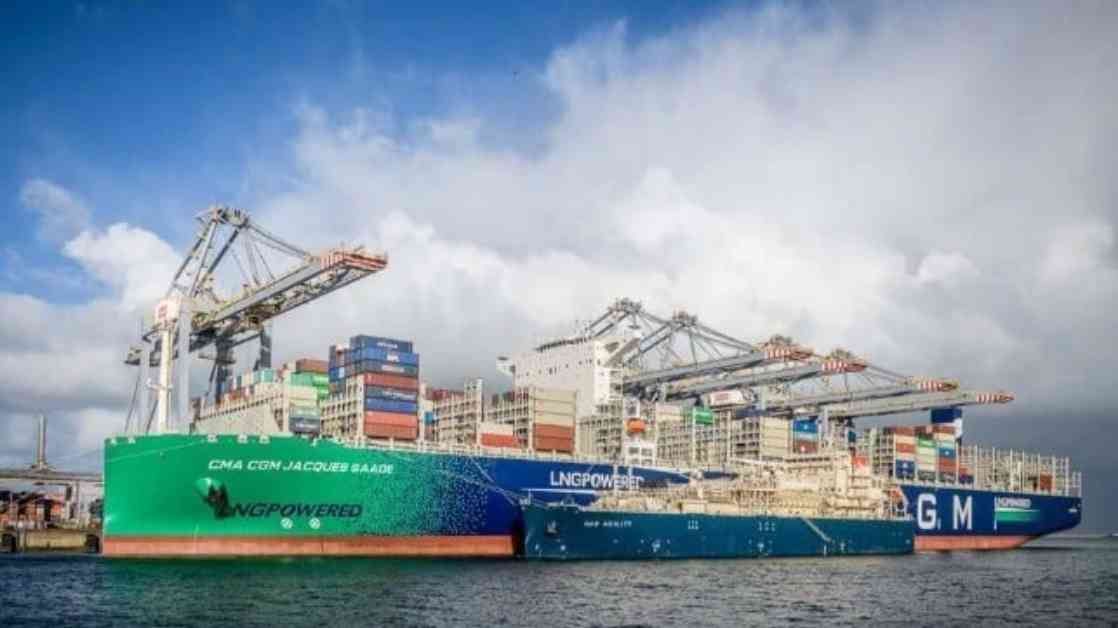The maritime industry is facing a crucial deadline of achieving net zero emissions by 2050. With only 305 months left, the industry is struggling to find common ground on practical solutions for long-term adaptation. The focus on theoretical and unproven solutions has overshadowed the need for understanding and implementing alternative fuels.
The Maritime Alternative Fuels Barometer, commissioned by SEA-LNG and conducted by Thetius, provides insights into the current perceptions of future fuels versus reality. The report examines availability, supply, technological readiness, and the impact on emissions to bridge the gap between perception and action.
While the industry has practical solutions and innovations at its disposal, there are significant challenges to overcome in achieving net zero emissions. Commercial viability, availability, and technical capabilities are among the critical factors that need to be addressed. Investment in fuel production and supply chain infrastructure is essential for the successful transition to alternative fuels.
The report indicates that LNG, ammonia, and methanol are perceived favorably for future goals, but there are challenges to overcome. Methanol, for example, has the potential to reduce CO2 emissions significantly when produced from renewable sources. However, the industry needs to scale up production capabilities to meet the demand for green methanol.
Ammonia is another promising future fuel, but infrastructure and safety measures need to be addressed to mitigate risks. LNG, on the other hand, offers immediate reductions in GHG emissions and is the only fossil-derived fuel that cuts emissions compared to traditional fuel oils. With advancements in technology, methane slip is expected to be a non-issue after 2030.
Bio-LNG and e-LNG provide a low-risk pathway to achieving net zero emissions by 2050. Bio-LNG can result in significant GHG reductions and is compatible with existing infrastructure. Synthetic fuels like e-LNG require renewable hydrogen production and are expected to be available in sustainable quantities by the mid-2030s.
Collaboration among shipowners, operators, investors, financiers, and regulators is crucial to establishing realistic goals and implementing practical solutions. Information sharing based on real science and facts is essential for making informed decisions and taking action towards a sustainable future.
In conclusion, there is no silver bullet to achieving net zero emissions by 2050. The industry needs to focus on real data, scientific facts, and practical analyses to drive meaningful change. By investing in alternative fuels and embracing new technologies, the maritime industry can work towards a more sustainable future for generations to come.
